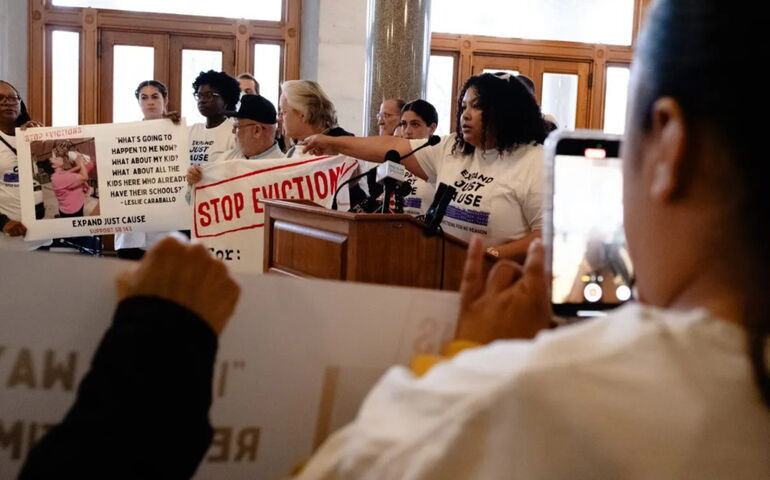Processing Your Payment
Please do not leave this page until complete. This can take a few moments.
-
News
-
Editions
-
- Lists
-
Viewpoints
-
HBJ Events
-
Event Info
- 2024 Economic Outlook Webinar Presented by: NBT Bank
- Best Places to Work in Connecticut 2024
- Top 25 Women In Business Awards 2024
- Connecticut's Family Business Awards 2024
- What's Your Story? A Small Business Giveaway 2024 Presented By: Torrington Savings Bank
- 40 Under Forty Awards 2024
- C-Suite and Lifetime Achievement Awards 2024
- Connecticut's Health Care Heroes Awards 2024
-
-
Business Calendar
-
Custom Content
- News
-
Editions
View Digital Editions
Biweekly Issues
- April 29, 2024
- April 15, 2024
- April 1, 2024
- March 18, 2024
- March 4, 2024
- February 19, 2024
- February 5, 2024
- January 22, 2024
- January 8, 2024
- + More
Special Editions
- Lists
- Viewpoints
-
HBJ Events
Event Info
- View all Events
- 2024 Economic Outlook Webinar Presented by: NBT Bank
- Best Places to Work in Connecticut 2024
- Top 25 Women In Business Awards 2024
- Connecticut's Family Business Awards 2024
- What's Your Story? A Small Business Giveaway 2024 Presented By: Torrington Savings Bank
- 40 Under Forty Awards 2024
- C-Suite and Lifetime Achievement Awards 2024
- Connecticut's Health Care Heroes Awards 2024
Award Honorees
- Business Calendar
- Custom Content
CT housing advocates say they’re tired of waiting for change
 SHAHRZAD RASEKH / CT MIRROR
"That's me," says Bridgeport resident Leslie Caraballo, pointing towards a banner while speaking at a rally at the Capitol.
SHAHRZAD RASEKH / CT MIRROR
"That's me," says Bridgeport resident Leslie Caraballo, pointing towards a banner while speaking at a rally at the Capitol.
Housing advocates have a message for state lawmakers: They are tired of waiting for change while thousands of Connecticut residents face housing costs they can’t afford and the prospect of losing their homes.
In a pair of press conferences at the state Capitol on Thursday, tenant union supporters and housing advocates gathered to tell lawmakers that they want to see change, and they want to see it soon. The groups have advocated for reforms to state eviction law, more funding for the state’s homelessness response system, more rental assistance, funding to increase housing development or infrastructure for housing development.
As this year’s legislative session draws closer to its end, it’s likely that many of the hundreds of bills still waiting for votes will die. State lawmakers have said they won’t propose a full budget adjustment package this session, meaning they’re mostly working with leftover COVID relief money, substantially less than past fiscal session proposals.
It’s also an election year, which can mean legislators who are fighting to maintain their seats may be unwilling to take on controversial bills.
“I am tired,” said Vanessa Liles, co-project director at PT Partners in Bridgeport. “I am exhausted … I get calls every week about someone in a housing crisis.”
Connecticut lacks about 92,500 units of housing that are affordable and available for its lowest income renters, according to recent estimates from the state’s Housing Finance Authority. Rent costs are rising. Homelessness has increased. The inventory of homes for sale has hit historic lows. Thousands are paying more than a third of their income to housing costs.
Housing experts have said these issues are the result of a tight housing market and that the best way to alleviate the pressure is to build more housing.
The frustration has grown year after year, advocates said Thursday. Last session was purported to be the one during which members focused on housing issues. But the bill that came out didn’t include measures to substantially increase housing in Connecticut.
“The clock is ticking, and the path forward for those bills is not entirely clear,” said Erin Boggs, executive director of advocacy group Open Communities Alliance. “So we are on the verge of doing nothing to create more affordable housing for the second year in a row, again, in the middle of a housing crisis. This is unfathomable.”
Open Communities Alliance is one of the groups that formed the coalition Growing Together Connecticut. Lawmakers at the Growing Together Connecticut press conference said they are hopeful despite the challenges this session.
Housing co-chair Rep. Antonio Felipe, D-Bridgeport, said they’re planning to take “big swings.”
“We should not make it hard to protect somebody’s human rights,” Felipe said. “And housing is human right. The right to have someplace to live with your family, lay your head, take a shower, commute, do the things that you need to do.”
House Democratic leadership on Thursday said they understand the frustration. House Majority Leader Rep. Jason Rojas, D-East Hartford, said he shares many of those feelings, saying that he worries about what housing availability will be like 10 years from now without change.
“It’s not just new housing, but it’s also replacing a lot of old housing … in places like Hartford, where you have a lot of turn-of-the-century housing that has lead paint in it and is old and blighted and needs to come down,” Rojas said. “And there are people who are forced to live there. And not just at the lower end of the income spectrum. There’s a lot of middle-income people who are significantly house-burdened.”
House Republican Leader Rep. Vincent Candelora, R-North Branford, said Republicans want to see proposals such as transit-oriented development, which would encourage more density near public transportation, and building in areas that already have sewage capacity to handle more housing units.
“The devil’s in the details of those proposals,” Candelora said. “I’m not aware of all the specifics. But yes, I mean, I think that what we should be focusing on is looking at those areas [transit-oriented development]. But at the same time, Connecticut has to invest in our public transit.”
He specifically cited cutbacks on service on the Shoreline East line.
Candelora didn’t directly say whether he’d support a bill known as Work, Live, Ride, one of the session’s major transit-oriented development proposals. Republican committee members objected to the bill during committee meetings, saying it would erode local control and was overly prescriptive.
Evictions
Republicans and landlord groups have also opposed Senate Bill 143, the eviction reform bill. The bill would end what’s called “no-fault” or “lapse-of-time” evictions — evictions that occur when leases end.
The Housing Committee approved the measure in February, and Rojas said Democrats still need to discuss it.
Senate Bill 143 would end evictions that occur when leases run out for tenants in buildings with five units or manufactured mobile home parks. That protection already exists for senior citizens and people with disabilities.
Tenant union members and housing advocates have argued that these type of evictions are often used as retaliation for speaking up about poor housing conditions or joining a tenant union. They’ve also been used by landlords looking to raise rents.
There were more than 20,600 evictions filed in Connecticut in 2023, and about 11% of those were lapse-of-time evictions, meaning the lease term was up. That accounts for more than 2,000 evictions annually.
“Who are these tenants who are losing their homes?” Connecticut Tenants Union President Hannah Srajer said. “We have moms who have to break the news to their 6-year-old that they won’t be able to see their favorite teachers anymore. We have workers whose ancestors had lived in the same town for 400 years who are being priced out and are no-fault evicted out of that town. We have families who are suddenly homeless for reporting mold infestations that are making them seriously sick.”
Rep. Joe Polletta, R-Watertown, said he thinks the bill would make landlords pickier about whom they rent to, which could harm people with past evictions, criminal records or low credit scores.
“I think what the bill does is actually adversely impact the people that it’s trying to help. I think it’s going to make landlords think twice about who to rent to,” said Polletta, who is a landlord. “I think it’s actually going to cause some landlords to raise rents, because, again, we’re pitting housing providers against tenants.”
Some tenants have reported that everyone at a property or in a building has received these type of eviction notices, particularly when new, larger landlords purchase the property.
“This law will require landlords to have a valid reason to evict tenants whose lease has expired, providing more protection for people to remain in their homes,” Liles said.
She added that Black people are about three times more likely to face eviction than their white counterparts, and Hispanic people are about twice as likely.
Felipe said Thursday that lawmakers had been in conversations with property managers and landlords as well as hearing often from tenants.
“Property management are telling us that it’s a case-by-case basis, or there’s nothing that they can do, which for me is code for ‘I want to do what I want to do,'” Felipe said. “We’re not going to let you do what you want to do.”
Rojas said the issue is politically tough because a lot of lawmakers have talked to constituents about difficulties landlords faced during the COVID-19 pandemic. Government orders put halts on most evictions for months during the public health emergency in order to prevent the spread of illness from people going into congregate settings such as homeless shelters.
“I think you’re just beginning to see legislators who are listening to that side of the debate, not that we’re indifferent to what’s happening with individuals who are being evicted,” Rojas said. “But it’s trying to find the balance between those two priorities. And it’s a tough balance to strike.”
Lapse-of-time evictions can be used to evict tenants who pose problems for the larger community, said Lauren Tagliatela, co-chair of the government relations committee for the Connecticut Apartment Association. Tagliatela is a landlord in the New Haven area.
“I have sympathy for what they’re going through, but I don’t think that changing the way contracts work is the answer,” Tagliatela said.
Funding
Tagliatela said she’d support measures such as a Housing Growth Fund to encourage more multi-family development. The proposed $50 million fund is part of the Senate Democrats’ housing priority bill, Senate Bill 6.
Housing advocates, as well as other social service groups, have several funding requests this session.
One that’s received bipartisan support is $20 million in additional funding for the state’s homelessness response system. Service providers want annualized cold weather funding to expand shelter beds in the winter, said Sarah Fox, chief executive officer of the Connecticut Coalition to End Homelessness.
Homelessness has been on the rise over the past couple of years, particularly unsheltered homelessness, meaning people sleeping outside or in places not meant for human habitation.
Data compiled Wednesday from the coalition shows that there are just over 1,000 people living outside in Connecticut, about 38 of whom are children and nearly 300 of whom are over the age of 55.
“Housing insecurity exists in every community in our state, whether it is recognized or not,” Fox said. “It’s a critical issue and a social need and determinant of health that impacts all outcomes for people. Today, we stand in a moment where we can make great change. And yet it doesn’t seem like that change is coming.”
Advocates are also asking for more funding for the state’s Rental Assistance Program, which has seen rising costs because rents are getting more expensive.
“We are here today with solutions,” said Chelsea Ross, executive director of the Partnership for Strong Communities. “We are here to remind our leaders that people all around the state are hurting because they don’t have housing or don’t have housing they can afford.”
Lawmakers have said that there likely won’t be changes to the budget during this session. State workers have found more than $300 million in unspent COVID relief funds so far, said House Speaker Rep. Matt Ritter, D-Hartford.
Liles said the press conference was a call-to-action for lawmakers. Housing advocates have laid out a plan, and lawmakers need to act, she said.
Advocates already know the consequences of not taking action, she said, pointing out a woman who attended the press conference who is facing eviction in Bridgeport.
“She’s living the consequence of doing nothing,” Liles said. “So what happens? What about them?”

2022 Giving Guide
This special edition informs and connects businesses with nonprofit organizations that are aligned with what they care about. Each nonprofit profile provides a crisp snapshot of the organization’s mission, goals, area of service, giving and volunteer opportunities and board leadership.
Learn more
Subscribe
Hartford Business Journal provides the top coverage of news, trends, data, politics and personalities of the area’s business community. Get the news and information you need from the award-winning writers at HBJ. Don’t miss out - subscribe today.
Subscribe
2024 Book of Lists
Delivering Vital Marketplace Content and Context to Senior Decision Makers Throughout Greater Hartford and the State ... All Year Long!
Read Here-
2022 Giving Guide
This special edition informs and connects businesses with nonprofit organizations that are aligned with what they care about. Each nonprofit profile provides a crisp snapshot of the organization’s mission, goals, area of service, giving and volunteer opportunities and board leadership.
-
Subscribe
Hartford Business Journal provides the top coverage of news, trends, data, politics and personalities of the area’s business community. Get the news and information you need from the award-winning writers at HBJ. Don’t miss out - subscribe today.
-
2024 Book of Lists
Delivering Vital Marketplace Content and Context to Senior Decision Makers Throughout Greater Hartford and the State ... All Year Long!
ABOUT
ADVERTISE
NEW ENGLAND BUSINESS MEDIA SITES
No articles left
Get access now
In order to use this feature, we need some information from you. You can also login or register for a free account.
By clicking submit you are agreeing to our cookie usage and Privacy Policy
Already have an account? Login
Already have an account? Login
Want to create an account? Register
Get access now
In order to use this feature, we need some information from you. You can also login or register for a free account.
By clicking submit you are agreeing to our cookie usage and Privacy Policy
Already have an account? Login
Already have an account? Login
Want to create an account? Register





0 Comments